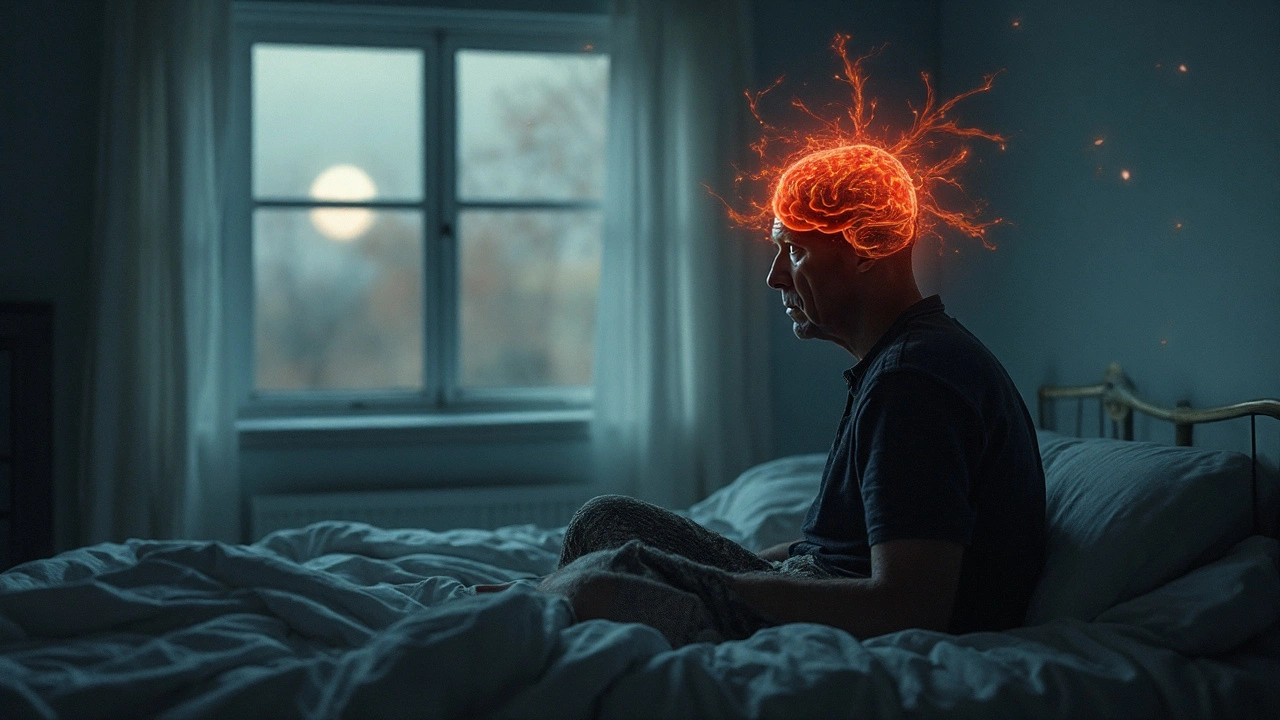Sleep Disorders: What They Are and How to Fix Them
Bad sleep doesn’t have to be a mystery. Most people notice fatigue, crankiness, or trouble focusing, but the real issue could be a sleep disorder. Understanding the basics helps you spot the problem early and take steps to feel better.
Common Types of Sleep Disorders
Insomnia is the most talked‑about trouble. It means you can’t fall asleep, stay asleep, or you wake up too early. Stress, caffeine, or an irregular bedtime often trigger it.
Sleep apnea hides behind loud snoring and sudden pauses in breathing. When the airway collapses, you briefly stop breathing, drop oxygen levels, and wake up gasping. It’s more common than you think and can raise blood pressure.
Restless Leg Syndrome (RLS) gives you an itchy, crawling feeling in your legs that eases only when you move them. It usually shows up at night, making it hard to settle down.
Other disorders include narcolepsy (sudden daytime sleep attacks), circadian rhythm disorders (your internal clock is off), and REM behavior disorder (acting out dreams). Each has its own pattern, but they all disturb the restorative part of sleep.
Practical Tips to Improve Sleep
First, set a consistent sleep‑wake schedule. Going to bed and getting up at the same time, even on weekends, trains your body clock.
Second, create a bedroom that says “sleep.” Keep it cool, dark, and quiet. Use blackout curtains or a white‑noise app if needed.
Third, watch what you consume before bedtime. Cut caffeine after noon, limit alcohol (it can worsen apnea), and avoid heavy meals close to sleep.
Fourth, wind down with a calming routine. Reading, gentle stretching, or a warm shower signals to your brain that it’s time to relax.
If you suspect a disorder, talk to a doctor. A sleep study can confirm apnea, while a simple questionnaire may reveal insomnia or RLS. Treatment can range from lifestyle changes to CPAP machines for apnea or medication for RLS.
Finally, move your body during the day. Regular exercise improves sleep depth, but try not to work out too close to bedtime, as it can raise heart rate and delay sleep onset.
Fixing a sleep disorder isn’t a one‑size‑fits‑all fix, but combining these habits with professional advice puts you on the road to better rest. Better sleep means sharper focus, steadier mood, and even a healthier heart.
How Sleep Disorders Fuel PTSD: Causes, Symptoms & Treatments
Explore how sleep disorders worsen PTSD, the neurobiology behind it, and evidence‑based treatments to restore restful nights.
Learn more...